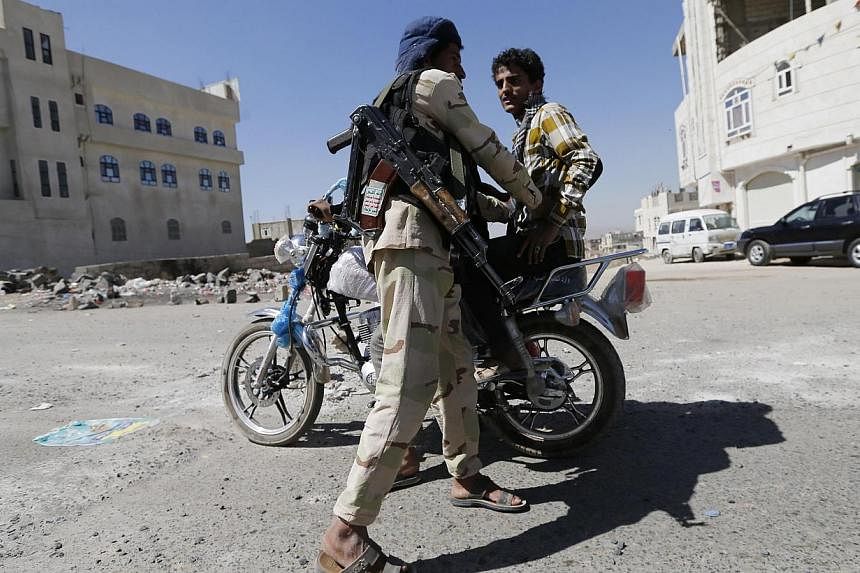SANAA (AFP) - Yemeni Shi'ite militiamen on Tuesday freed a top presidential aide whose kidnapping deepened the country's crippling political crisis, said a person who helped mediate his release.
President Abedrabbo Mansour Hadi's chief of staff Ahmed Awad Mubarak was handed over to a committee of mediators, 10 days after he was abducted, Hussam al-Shargabi told AFP.
Mubarak was later taken to the Sanaa residence of a tribal chief from Sabwa, the same southern province from which he himself hails.
The Shi'ite militia, known as Huthis, have controlled most of the Yemeni capital since Sept 21.
Their seizure of the presidential palace last week prompted Hadi to tender his resignation along with Prime Minister Khalid Bahah, who fled after militiamen encircled his residence.
Mubarak's release comes one day after UN envoy Jamel Benomar met with Huthi leaders, as he sought to broker an agreement following Hadi's offer to resign, UN spokesman Stephane Dujarric said Monday.
The presidential chief of staff was abducted on Jan 17, apparently in a bid by the militia to extract changes to a draft constitution.
The Huthis had been due to release him immediately under a deal struck six days ago, but they continued to keep him in captivity until Tuesday.
Under the deal, they had also pledged to vacate the presidential palace, withdraw from areas surrounding the residences of Hadi and Bahah, and abandon checkpoints across Sanaa, in return for concessions over the draft constitution.
The Huthis have opposed the draft constitution because it would divide Yemen into six federal regions.
Benomar said Hadi and his cabinet were effectively under house arrest, and warned violence could erupt at any time.
But he added a power-sharing deal "was possible," according to two diplomats who attended a session during which the UN envoy briefed the Security Council by video link from Sanaa.
The crisis has raised fears that Yemen, which lies next to oil-rich Saudi Arabia, could become a failed stated.

